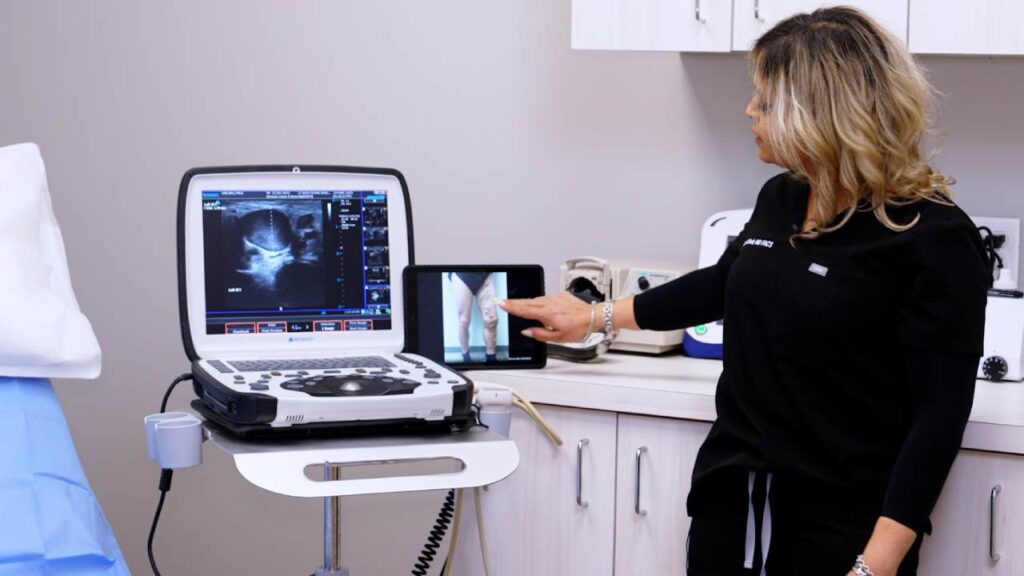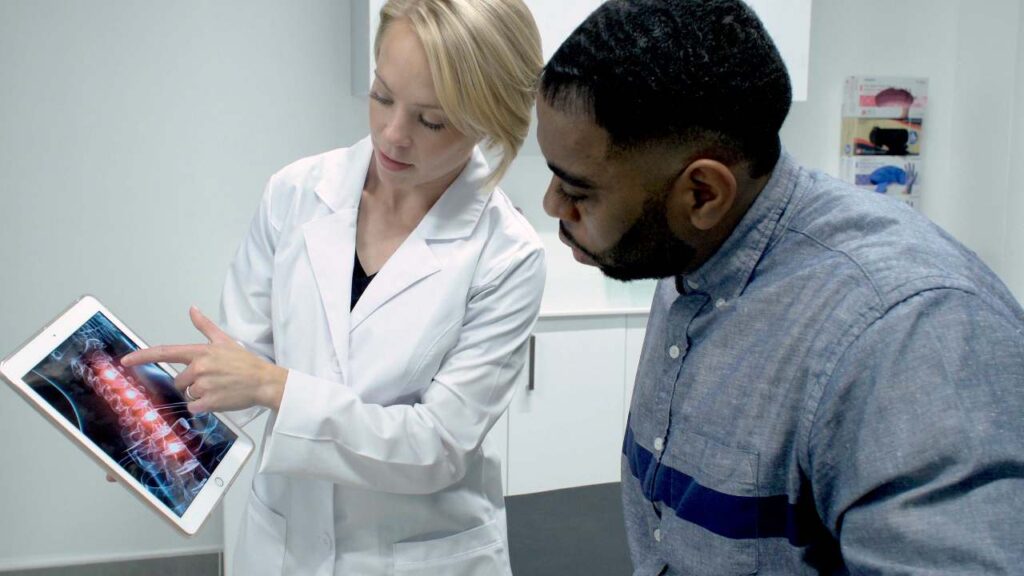How to Describe Back Pain to Doctor? Pain Control Clinic Answers

Are you suffering from acute pain in your back? If so, you should consult a pain doctor as soon as possible.
People with back pain are a lot more likely to miss out on work or even suffer disabilities. This is because back pain is extremely complex and can originate from several root causes like spinal stenosis, osteoarthritis, disc herniation, and many others.
Furthermore, the intensity and sensation of back pain is different for different people. Your back is also subject to a lot of different types of movements — sudden jolts, hunching over, twists, etc. As such, you may suffer from chronic back pain because of issues originating in your large muscles, spinal nerves, facet joints, or your interventional discs. You may even be suffering from chronic pain or nerve pain, which is why you must consult a pain doctor immediately.
Unfortunately, diagnosing the precise root cause of back pain can be challenging, despite the use of screening tests like CT scans, X-Rays, MRIs, etc. That’s why you must be completely transparent with your back pain doctor and describe the acute pain as accurately as possible.
During your diagnosis, your pain doctor will ask you for your medical history, discuss your symptoms, and run a series of screening tests. In this article, we discuss how to describe back pain to doctor to ensure accurate diagnosis and treatment of chronic pain.
Understanding the Types of Pain
As previously mentioned, how you describe the intensity of acute pain, its area of distribution, and other symptoms is crucial. To effectively communicate the symptoms of back pain, it’s important to also understand the types of pain out there.
Axial Pain/ Mechanical Pain
Axial or Mechanical Pain refers to the type of pain that remains in a single spot. It can be described as a sharp or dull throbbing sensation that comes and goes. The primary root cause of axial pain is a muscle strain or annular tears in discs.
Referred Pain
Referred Pain has a variable area of distribution because it moves around and causes a dull ache in your lower back and other regions. Referred pain caused by degenerative disc disease, for example, causes pain in the hips and thighs.
Radicular Pain
Radicular Pain, also known as Sciatica pain, shoots along the spinal nerve and feels like a jolt of electricity or searing pain. This happens because of compression of the spinal nerves, spinal stenosis, herniated disc, or spondylolisthesis. If you suffer from radicular pain in your lower back, the sensation may also spread to your legs.
How to Describe Chronic Pain to a Doctor?
The following tips will help you describe chronic pain to your doctor accurately. This will help your doctor diagnose your chronic back pain accurately and provide the ideal treatment.
Transparency of Medical History
The most important part of your consultation is the discussion of your medical history. You should be completely transparent with your doctor, answering all of their questions accurately. Let them know of all past diseases and issues, even if they seem unrelated to you. Mention all of the medications you’re currently on. This will help the pain doctor determine which pain treatments would be ideal for you.
The intensity of Acute Pain
Some people with back pain have an impulse to downplay the intensity of acute pain. This is not advisable — you should honestly tell the doctor how much pain you’re in. Intensity is a measure of the pain signals you’re receiving. You may be asked to rate the intensity of pain on a scale of 10 or you may be asked to identify it from a chart of faces representing different emotions and intensity of pain.
Quality of the Pain
You should also describe the quality of the pain, i.e., does it feel like burning, stabbing pains, electrical sensations, or some other type of pain? To accurately describe the quality of the pain, you should focus on these aspects:
- What’s the pain sensation like?
- Does the pain change with time or is it constant?
- How intensely do you feel the pain at different times?
Location of the Pain
It’s often hard to pin-point exactly where you’re feeling the pain. For example, if you suffer from nerve pain, then the pain signals may radiate down to your legs, which will increase the range of pain. Your pain doctor may provide a body diagram on which you can trace the pain signals based on intensity.
Mobility of the Affected Region
Chronic pain doesn’t just cause discomfort, but it also affects your quality of life and prevents movement. Back pain can prevent you from working or playing actively — it can even impede your ability to perform simple functions like bending over. You should discuss how the back pain affects your mobility as well.
Psychological Issues
Acute pain can also occur because of emotional or psychological reasons. As such, the pain doctor will ask you about your mental health and whether you have depression, anxiety, or other psychological issues. You should be transparent about it because it will allow the doctor to recommend the best treatment plan.
Schedule your Back Pain Consultation
VIP Medical Group’s Pain Treatment Specialists is one of the best pain management clinics in the country, complete with some of the finest pain doctors available. We carefully diagnose the root cause of your chronic pain and treat it using the best minimally invasive procedures with a negligible risk of side effects. For more information, please schedule your back pain consultation today.







